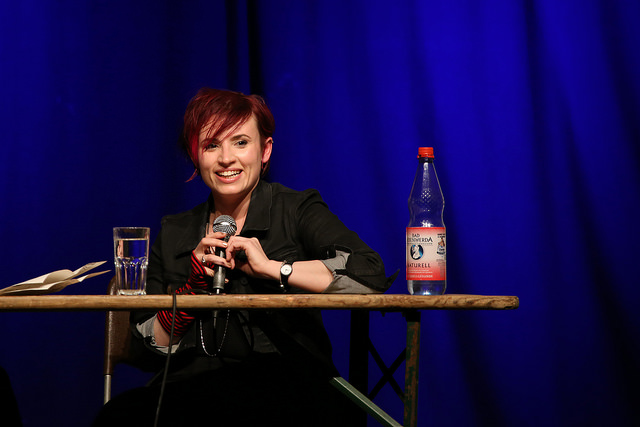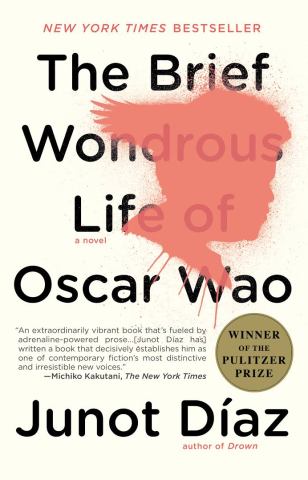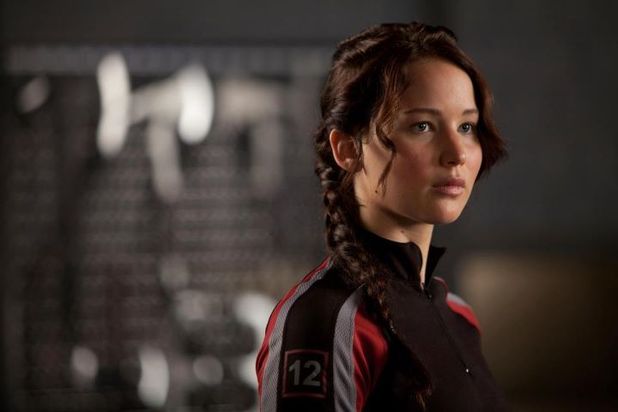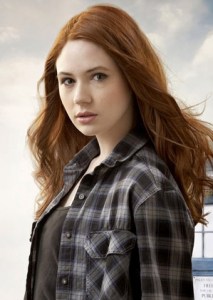Laurie Penny is a feminist, and good at way too damn many things.
As a journalist, she’s a contributing editor at The New Statesman, has written about social justice, pop culture, gender issues and digital politics for countless other outlets including The Guardian, The New York Times, Vice, Salon, The Nation, The New Inquiry and many more; and she was recently a Nieman Fellow at Harvard University. She’s the author of five books including one I’d highly recommend called Unspeakable Things: Sex, Lies and Revolution (Bloomsbury 2014), which you should do yourself a favor and pick up. In addition to that, she’s also moving into the fiction arena. This year, she published a short comic for Vertigo Quarterly SFX #1 called “Something in the Water,” a response to the classic fairy tale, The Little Mermaid, with art by Brett Parson.
She’s also just fucking rad.
I had the chance to have a long, rambly conversation with Penny when I caught up with her at this weekend’s Online News Association Conference in Los Angeles. In this exclusive interview for TMS, Penny talks about feminism in geek culture, and the political nature of fiction.
Teresa Jusino (TMS): One of the great things about your book, Unspeakable Things: Sex, Lies, and Revolution, is that you really try to get a conversation about men going with relation to feminism – not just “what they’re doing wrong,” but why they currently feel the way they feel. In the Geek Space (not just the internet, but in film, TV, books, etc), where do you think that conversation can and should start?
Laurie Penny: Stories are changing right now, and that is fascinating and exciting to me. And it’s really also terrifying to a certain kind of guy whose entire sense of self has been predicated on the idea that the heroes of any story you can possibly think of will look and sound just like him. That’s why you see so much rage over the new Ghostbusters film, and so much rage over Mad Max: Fury Road, which – even if you’d excised all of the feminist stuff from it, and the amazing, empowering fight scenes – it would’ve still been a legit, amazing, entertaining two hours. And that’s what was most threatening about that. It’s not only that these stories are out there, it’s that they’re also fun. And that’s what the childish bloody response to the Hugos was about. The Puppies…
TMS: Ugh. Sad Puppies, Rabid Puppies….stop ruining puppies for everybody!
Penny: They can never ruin puppies. They will never take puppies from us! [laughs] It is a push-back against the way that narrative is changing. And I believe that narrative is political, which is one of the reasons why I’m getting back into writing fiction myself. I’m sure I’m not going to be able to make an amazing contribution, but I feel like I need to be getting in there with changing the stories I love. Have you ever read The Brief, Wondrous Life of Oscar Wao [by Junot Díaz]?
TMS: Oh yeah. Love that book!
Penny: The part in that book where we get to Oscar’s reaction to the racism of Lord of the Rings is one of the most perfect encapsulations of that disconnect. People of color are encouraged to empathize with white people and identify with white people in all works of fiction, just like women are encouraged to identify with men in works of fiction. We are used to seeing these people as our heroes.
TMS: And as universal.
Penny: And as universal. Yes, exactly. White guys are never expected to see themselves in anybody who doesn’t look like them. And that idea is profoundly challenging, which is why, for example, you get such an outcry over the idea that [The Doctor on] Doctor Who might one day be a woman or a person of color, because women and people of color have been seeing themselves in The Doctor for generations now! Which is why I love cosplay, and cross-gender cosplay and cross-race cosplay, it’s wonderful. But it angers people so much. And the phrase is always “You’re taking my childhood away.” So, your childhood and your sense of self is so fragile that changing the gender or the race of this one character would ruin the story for you? Why would that make it a worse story?
TMS: And what I always want to say to that statement too is – your childhood is always your childhood…unless you’re still a child. If your childhood is in the past, your childhood can’t be taken away from you, or ruined. We’re living in the now. And if you’re an adult person, things have changed!
Penny: But I think for some people, the childhood that “they’re trying to take away” is still very much in the present for them, even though they may be in their thirties, or forties, or fifties.
TMS: Whenever I hear stuff like this, it always seems like even men aren’t giving themselves enough credit. It boggles my mind that they have no problem saying these things and making themselves look worse. I wonder what power do they see in that for themselves when, to me, it clearly sounds like they were fragile. But they think that they should be standing up for this. They see themselves as heroes…
Penny: And I’m not getting down on fragility. There is nothing wrong with being fragile and vulnerable, and that’s part of what Geek World is all about. We’ve always been about a community where all kinds of people can be accepted. But that means all kinds of people. That means everyone. And that is a threatening idea, particularly for people who’ve gotten used to thinking of themselves as outsiders for so long. The idea that they’re not the only outsiders. Some people need maybe extra special help to come into that community and have that safe space.
The hypocrisy of saying that Geek World is a safe space for people who are different, and then saying You can’t come in, people of color can’t come in, women can’t come in, the queer people can’t come in…I don’t understand how that disconnect can occur in the brains of people that like the same comics that I do, for example. That hurts me.
TMS: Obviously there’s no one place to tackle the problem. Where do you think the responsibility is for this way of thinking? Does it have to start with the way parents raise their children? What can geeks do within their industries – within comics, within television, etc?
Penny: I think it’s about doing exactly the sort of thing that people like the Puppies, or people like GamerGate, are unhappy with. It’s publishing more women, more people of color. It’s bringing those stories to the front and understanding that those people will always find audiences, because it turns out there are a lot of readers out there, if given the option, don’t want to just read stories about white astronauts saving the world from martians. I mean, those are fun, too. I like those, too. But people want a variety of stories. What is crazy to me is that it’s not just about diversity, it’s also about better stories and broader stories. It’s also about quality of narrative and the quality of the art in our community, and pushing for more diversity is the same goal as pushing for better talent.
If you’re a part of a culture which only really promotes white, straight, guys, you will have a lower talent pool. It’s a simple numbers thing. You’ll be pulling from a smaller range of experience, from a smaller number of people, and the stories you get then, will be of a lower quality overall. Not to say that you won’t get some brilliant writers, you always will, but I have enough faith in our community that I think the brilliant writers will still come to the fore. I mean, if you look at the top-selling writers right now…it’s not like none of them are white, straight guys. Quite the opposite. But the idea that people who aren’t white, straight guys will get any kind of power, or any kind of recognition – that there might be room for other types of stories in this big, wonderful world we call Geekdom – is an anathema to a certain class of people.
TMS: Here at TMS we talk a lot about women in film and television. And from my experience and the writers I’ve talked to, it seems that television has become more of a welcoming space for women, whereas film is still mired in this competitive…If I’m a woman who’s gotten to a certain position… In your discussions with people, what has come up as a way to combat that at the creator/decision-maker level?
Penny: Well, this isn’t really an answer, but one of the things I think is interesting is that the format of storytelling in episodic television lends itself to more diversity and I think a better range of storytelling. Partly because most films are structured very much like novels in some ways. I believe that episodic narrative television is the preeminent storytelling form of our generation, bar none. Even though, you know, I’m wedded to novels forever. I read so many. But only with episodic television can you thread storylines and thread character arcs in a way that is actually much more representative of the way that we experience human interaction and the way our lives really are. And they’re about community, which is really exciting.
TMS: I think that’s exactly why YA novels that are parts of series are so popular now. Getting to know Katniss over three books.
Penny: Absolutely. And even non-YA novels. Game of Thrones is a story that is designed for television, which is one of the reasons it works so well. It’s a broad cast story. And so is Lord of the Rings, actually. And those are the stories that have always been the most beloved in Nerd World, and I think for a reason. Even before you had your Dungeons and Dragons gang…there is one nerd dream which is that you will be the hero saving the world by yourself, but it’s even more exciting to imagine yourself as part of a team and part of a community, and one of a number of people who all have their own different stories. And that’s something that we should all remember. That those are our myths too. It’s not just The Hero’s Journey. The Hero’s Journey can go and die in a fire, basically.
[Ed Note: I then mentioned The Heroine’s Journey by Maureen Murdock to her, which is something you should also check out if you think Joseph Campbell’s Hero’s Journey should go die in a fire.]
TMS: And that’s the interesting thing. Women have a “hero’s journey,” it’s just different.
Penny: Actually, you know what? One of the most line-by-line examples of the Hero’s Journey is actually the first Hunger Games book. When I was reading and learning about The Hero’s Journey as part of some courses I’ve been doing in fiction, you look at The Hunger Games and you can take it apart almost page-by-page, and it is a perfect example of that. And I think it was structured very carefully to do that. Chapter Two, she meets the Mentor. Chapter One is the call and the refusal of the call…it’s very, very classic, and there’s the love interest and the other love interest, and then returning to the place of origin with the gifts…it’s fascinating to see. And nobody really noticed that. And I think the reason nobody noticed that, even though it’s such a simple, classic story, is that we are not used to seeing the Hero’s Journey applied to women. We’re not used to seeing women as classic heroes in that way. Katniss Everdeen is a Classic Hero, – and crucially not in the model of the “fighting fuck-toy” or the “strong action woman.” Katniss Everdeen is a very different hero from that. If you flip the genders, the story would be just as exciting.
[Ed. Note: We then, as is wont to happen among geeks, got onto the topic of Doctor Who. I mentioned that I like Amy Pond a lot – despite the mystical pregnancy – because aside from that she had a very typically male story of being an Alpha who doesn’t think she needs anyone, or who feels like she has to take care of herself and handle things on her own, and she learns how to be vulnerable and realizes that she needs people. She needs The Doctor. She needs Rory. She doesn’t have to stand alone all the time. I likened her to Harry Potter realizing that despite being The Boy Who Lived, he learns that what really makes him strong are his friends. I also mentioned that I loved having a married couple on the TARDIS. Penny then waxes rhapsodic about how important Doctor Who was to her as a “baby queer” and a “baby feminist” when New Who premiered.]
Penny: [re: Amy and Rory on the TARDIS] Although it became about almost the fetishization of that. Because the previous four series had been so relentlessly gay, and had an enormously queer agenda, that it felt like they were forcibly wrenching the heterosexual agenda back into Doctor Who.
I’m actually re-watching New Who for the first time from the beginning, because my partner hasn’t seen it. And it’s very interesting, because that was ten years ago now. And since we’re talking about the power of storytelling, so much has changed in ten years since I was nineteen and at university watching that, that every so often I’m having to stop and say to my partner, “I just really want you to know how important this was when I was just a baby queer coming out and a baby feminist, watching these stories.”
I remember, one of my best friends in college, she was a couple of years older than me, and she’d always faced prejudice for being bisexual, and didn’t really have a context for it growing up, and had been confused, and there wasn’t a great deal of conversation about it as there is now. And I remember talking to her after we’d watched “The Empty Child,” the first episode with Captain Jack, and she was crying, and she was like, “This is the first time I’ve ever seen somebody who maybe feels like me on mainstream television.” And that’s not the point of him. Captain Jack is an awesome character. A bisexual superhero. Unbelievable!
And people were very upset with Doctor Who, being like Oh, this is the gay agenda! And I was like, Yeah! Yeah, sure it is! And it’s amazing. One of the reasons it’s so exciting is that these are stories that haven’t really been told in this way before, and I swear that Doctor Who and the stance that Russell T. Davies took and the way he pushed that agenda in the storytelling did more for kids – particularly in the UK, and then as it got more popular in the world – did more to change culture than any single initiative by any charity or government. That’s storytelling. Creating that space.
Science fiction has always been political. There’s never been a time when science fiction has not been political.
TMS: And you know what? I’m not thrilled with the Frank Millers of the world, for example. But he’ll infuse his politics everything he writes, and that’s supposed to be fine.
Penny: Well, that’s not politics, that’s just “the world.” That’s not a radical agenda. An agenda which is conservative, homophobic, sexist, and rampantly capitalist is not seen as “an agenda,” it’s just “the way the world is.” Sin City is not considered a film with a political agenda, but of course it is. Just as much as Mad Max.
———————————————————————-
Seriously, though. Check out Unspeakable Things wherever books are sold (but preferably an indie bookstore, natch). You won’t be disappointed.
(images via rosalux-stiftung on Flickr)
—Please make note of The Mary Sue’s general comment policy.—
Do you follow The Mary Sue on Twitter, Facebook, Tumblr, Pinterest, & Google +?






![[brief pic description]](https://www.themarysue.com/wp-content/uploads/2015/09/18768186888_977f40deb4_z.jpg?resize=640%2C427)







Published: Sep 30, 2015 05:00 pm